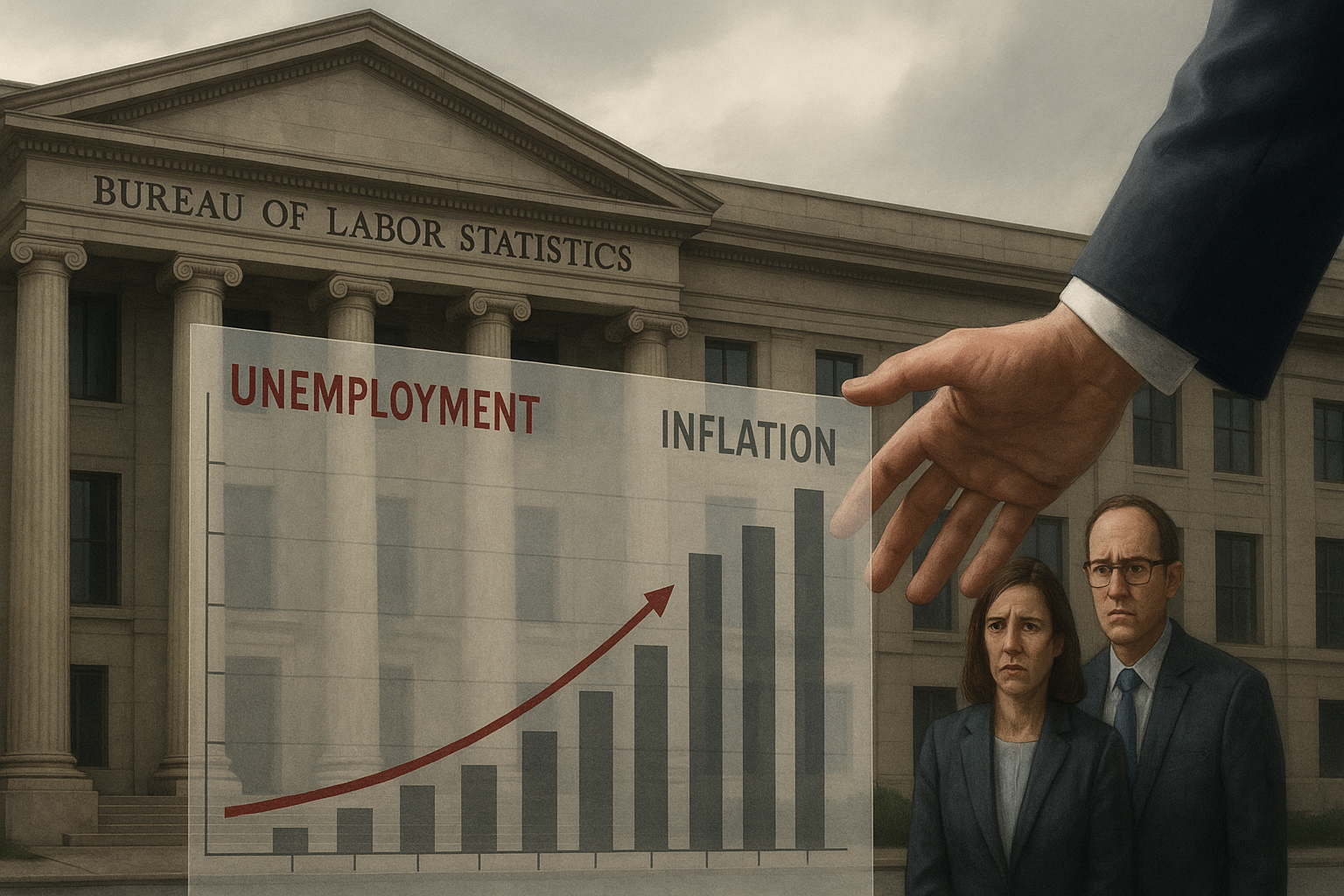The moment Donald Trump declared his plans to fire the Bureau of Labor Statistics chief, economists across the political spectrum didn't just raise eyebrows – they practically hit the panic button.
And honestly? They've got a point.
The BLS isn't some dusty government backroom where career bureaucrats shuffle papers nobody reads. It's the beating heart of American economic measurement – the place that tells us whether jobs are growing, inflation is biting, and wages are keeping up with the cost of milk and gasoline.
When politicians start meddling with economic data, things get messy. Fast.
I've been covering economic policy for years, and if there's one thing I've learned, it's that the independence of statistical agencies matters far more than most people realize. It's not about politics – it's about whether anyone can trust the numbers that drive trillion-dollar decisions.
Look at Argentina (and I've spent time reporting there, so trust me on this). After 2007, President Kirchner's government essentially hijacked INDEC, the national statistics agency. Officials producing unwelcome inflation numbers suddenly found themselves unemployed. The official inflation rate? A suspiciously mild 10%. Independent economists? They pegged it closer to 30%.
The manipulation was so blatant that The Economist eventually threw up its hands and stopped publishing Argentina's official data altogether. Can you imagine that happening to American numbers?
The damage wasn't just academic. Regular Argentinians created elaborate workarounds – relying on private economists' "inflation baskets" just to figure out how much their money was actually worth. International investors, meanwhile, demanded steeper premiums to lend to a country whose economic picture had become... well, fictional.
This isn't just a developing-world problem, either.
Trump himself has shown these tendencies before. Remember when he publicly pressured the Federal Reserve to slash interest rates ahead of his reelection campaign? When Fed Chair Powell maintained independence, Trump fired off that infamous tweet questioning whether Powell or Chinese President Xi was "our bigger enemy."
(I was covering the Fed that day. The shock among central banking veterans was palpable.)
The manipulation doesn't have to be ham-fisted to be dangerous. Sometimes it's subtle – tweaking methodologies, adjusting seasonal factors, or redefining terms in ways that – what a coincidence! – produce more flattering numbers.
Greece before its 2010 debt crisis offers another sobering example. Statistical shenanigans helped mask unsustainable government borrowing until the economy collapsed under its own fiction.
For markets, politicized economic data creates a special kind of chaos. Investors waste resources developing shadow statistics. Businesses delay investments because, well, who knows what's actually happening? And how do you negotiate wages when nobody trusts the inflation numbers?
The BLS has historically operated with remarkable professional independence. Career statisticians – not political appointees – make methodological decisions based on statistical best practices, not what makes the president look good at rallies.
Which explains why, despite conspiracy theories from both political tribes over the decades, BLS data has maintained credibility across administrations. The unemployment rate doesn't magically improve before elections (unless it's actually improving), and inflation doesn't vanish from reports when it becomes politically inconvenient.
The stakes extend beyond dry economic debates. When citizens can't trust official statistics, it poisons faith in institutions broadly. Argentina's number-fudging contributed to a deeper erosion of governmental trust that continues today.
In our already fragmented information ecosystem – where Americans increasingly inhabit separate reality bubbles – destroying one of the few remaining sources of commonly accepted facts seems... what's the word? Ah yes. Reckless.
Markets can stomach bad news. What gives them indigestion is uncertainty about whether the news is real at all. Political interference in economic data collection doesn't change economic reality – it just blindfolds us while we try to navigate it.
Will Trump follow through? Can institutions withstand the pressure? Those questions remain unanswered. But history suggests that once the wall between politics and statistics starts crumbling, rebuilding it takes years – sometimes decades.
In the meantime, we all pay the price.
